Things to Consider at the Grocery Store – Being Environmentally Aware
You might have already heard that Sobey’s is eliminating the use of plastic bags from all stores by 2020. When we heard this, we literally jumped for joy at the thought of a large corporation changing the way we shop and paving the way for other corporations to follow suit and start a plastic bag free shopping experience.
Can you even imagine a life without plastic bags? We can, and this is how we are getting a kick start to many other ways in which we can be environmentally aware at the grocery store.
Here are 10 tips to being eco-friendly at the grocery store, and saving the planet while doing so.
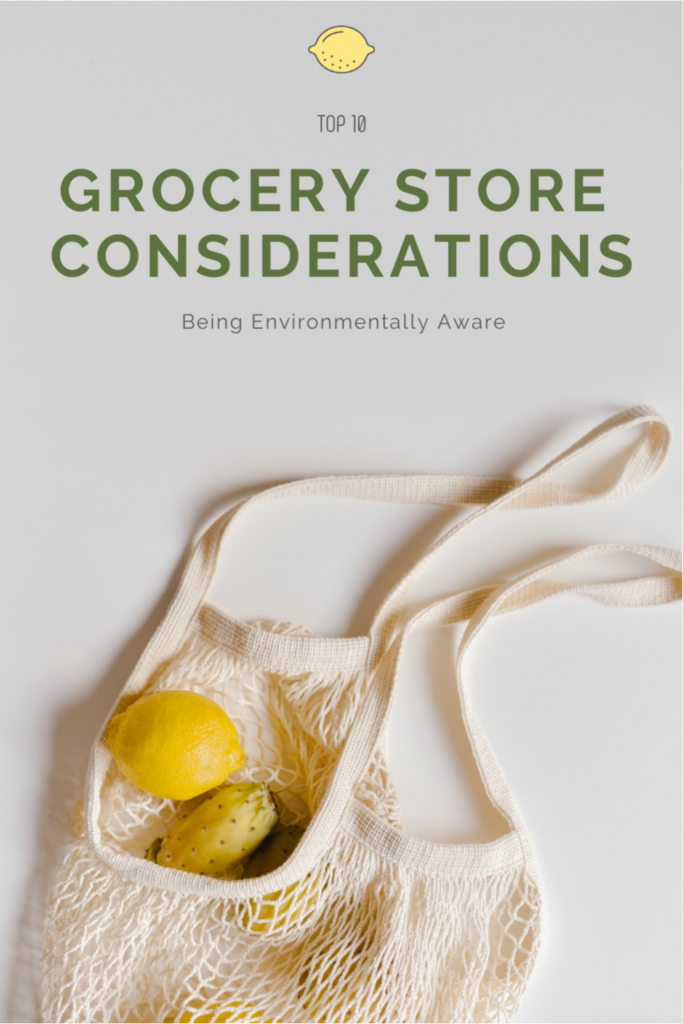
1. Reusable bag/bin
Starting with the obvious, bringing your own reusable bags or bins. Have you ever been in the checkout line and the cashier asks you “Do you need bags?”… how good does it feel to say, “No thanks, I brought my own”. That feeling of satisfaction knowing that you made a small difference, that will make a big impact (and save you some money too).
2. Reusable produce bags
Eliminating plastic grocery bags are one thing, but have you ever looked inside your reusable grocery bag full of groceries to see a bunch of plastic produce bags? On average a person might use up to five plastic produce bags in one shopping trip. This can be avoided by bringing your own mesh produce bags to avoid using one-use plastic bags (that will probably end up ripping or getting a hole before you even get home).
3. Look for the cardboard berry cartons and avoid the plastic
Something as simple as picking up a carton of berries rather than the plastic clamshells for your berries might seem like a small consideration, however, these plastic clamshells cost cities hundreds of thousands of dollars to recycle. In Calgary, 2,000 tonnes of plastic containers went to a landfill costing them $460,000 over 2 years. Make the conscious decision to avoid the plastic containers at the grocery store, which will, in turn, save your tax dollars from being thrown into a landfill as well.
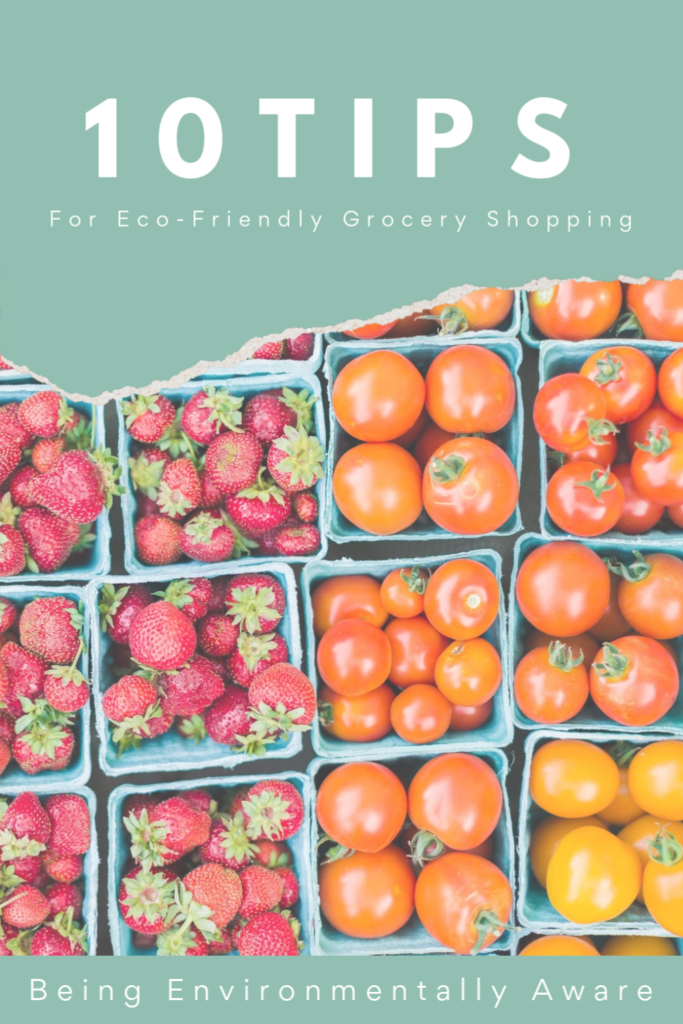
4. Avoid bread clips
Those tiny little bread clips, as much as they seem to be a small issue, are not. Bread clips are not always recyclable as they are classified as a #6 plastic which is not accepted by some reclying programs. Sometimes bread clips are hard to avoid but they can be reused multiple ties. If you wanted to take another approach, you could also collect them and donate them to purchase a wheelchair. It takes 260,000 bread clips to purchase a wheelchair.
5. Avoid pre-packaged meat, go to deli instead
Meat is often packaged on styrofoam and wrapped in plastic wrap. Both styrofoam and plastic wrap are substances that are not recyclable and must be placed in the garbage. A great alternative is to purchase your meat from the deli which will be wrapped in a recyclable paper.
6. Avoid pre-packaged bread
Usually, in the bakery section of the grocery store, you will see an entire section of bread that is wrapped in plastic bags and a section of freshly made bread that is unpackaged. All that one-use plastic is going into the recycling anyway so it is best to avoid and bring your own bread bag from home to carry your bread and put in a bread box when you get home to keep it fresh for longer.
7. Milk carton vs bags
There are many opinions as to which is is the better option for milk, a carton or bags. Cartons are recyclable whereas milk bags are not. However, some people have found clever ways on how to reuse a milk bag and expand their lifetime longer than just one use. Here is a list of 11 ways in which you can reuse your milk bags.
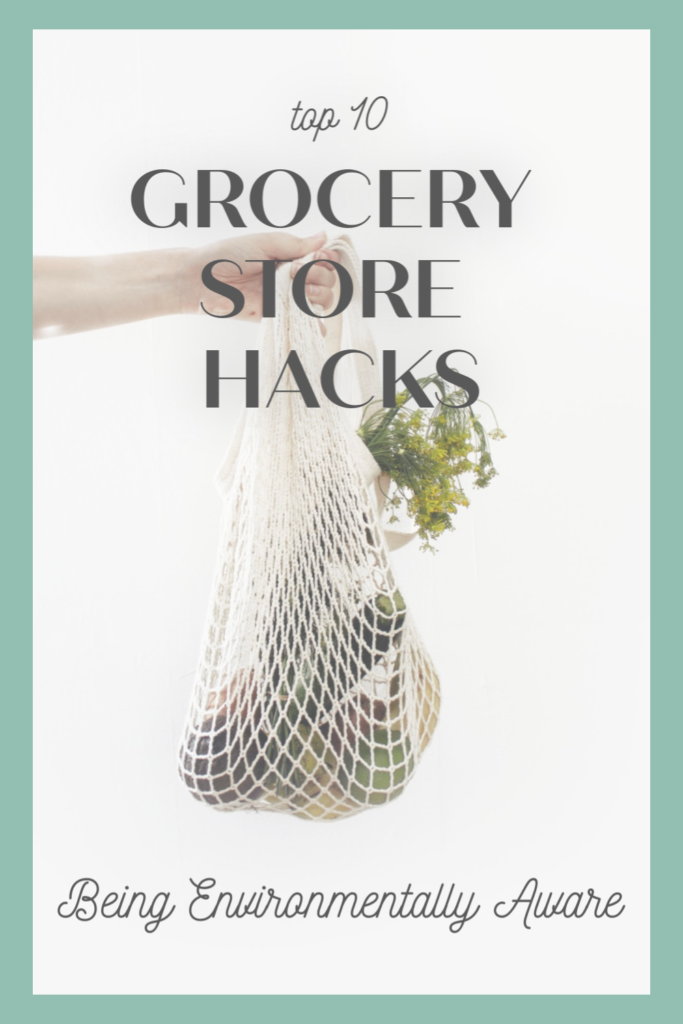
8. Items like bananas do not need a bag
Fruits and vegetables with thick skin, or skin that you peel off anyway, do not need bags. Their skin is the natural barrier which protects the fruit inside. Bagging these fruits and vegetables is a waste of plastic and can easily be avoided. These produce items include avocados, bananas, oranges, mangos, melons, onions, cabbage and the list goes on.
9. Buy in bulk, less packaging
Buying in bulk not only saves you money but it also saves the amount of packaging. Instead of buying multiple bottles of handsoap, buy a larger bottle and refill as needed into a reusable container. This will reduce the amount of packaging used.
10. Bring your own jars for nuts and bulk items
When purchasing nuts or dried fruits in the bulk aisle, bring your own jars or reusable bags to avoid the plastic ones provided. This will cut down on time as well when you are unpacking groceries as you have one less thing to unpack and you can just put the jar on the shelf.
Once again, here is our list of 10 ways to reduce your impact in the grocery store:
- Reusable bag/bin
- Reusable produce bags
- Look for the cardboard berry cartons and avoid the plastic
- Avoid bread clips
- Avoid pre-packaged meat, go to deli instead
- Avoid pre-packaged bread
- Milk carton vs bags
- Items like bananas do not need a bag
- Buy in bulk, less packaging
- Bring your own jars for nuts and bulk items
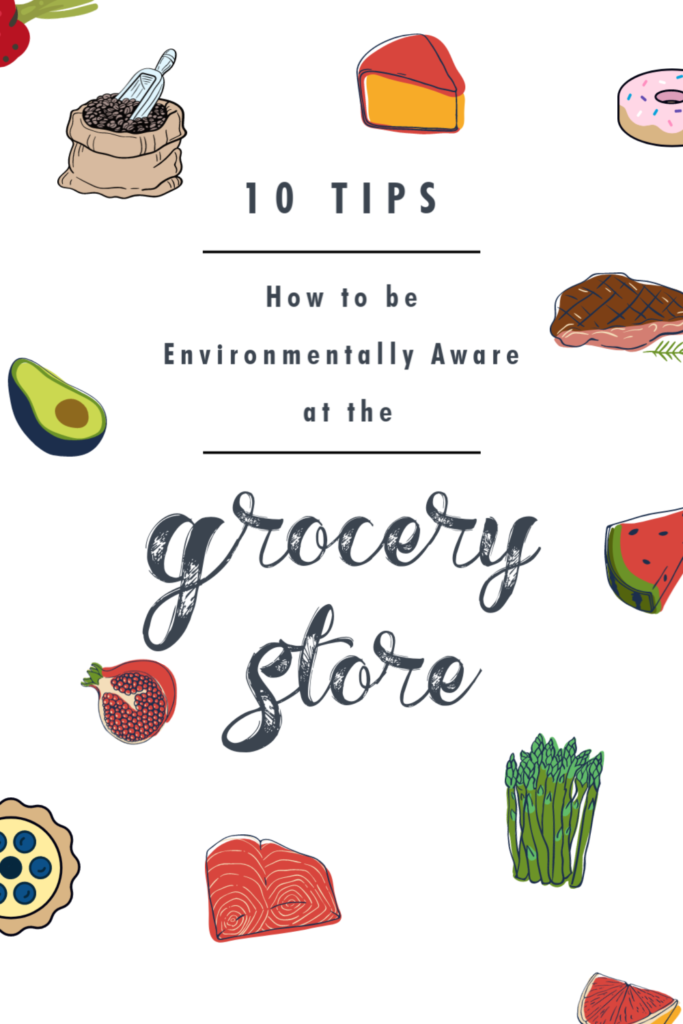

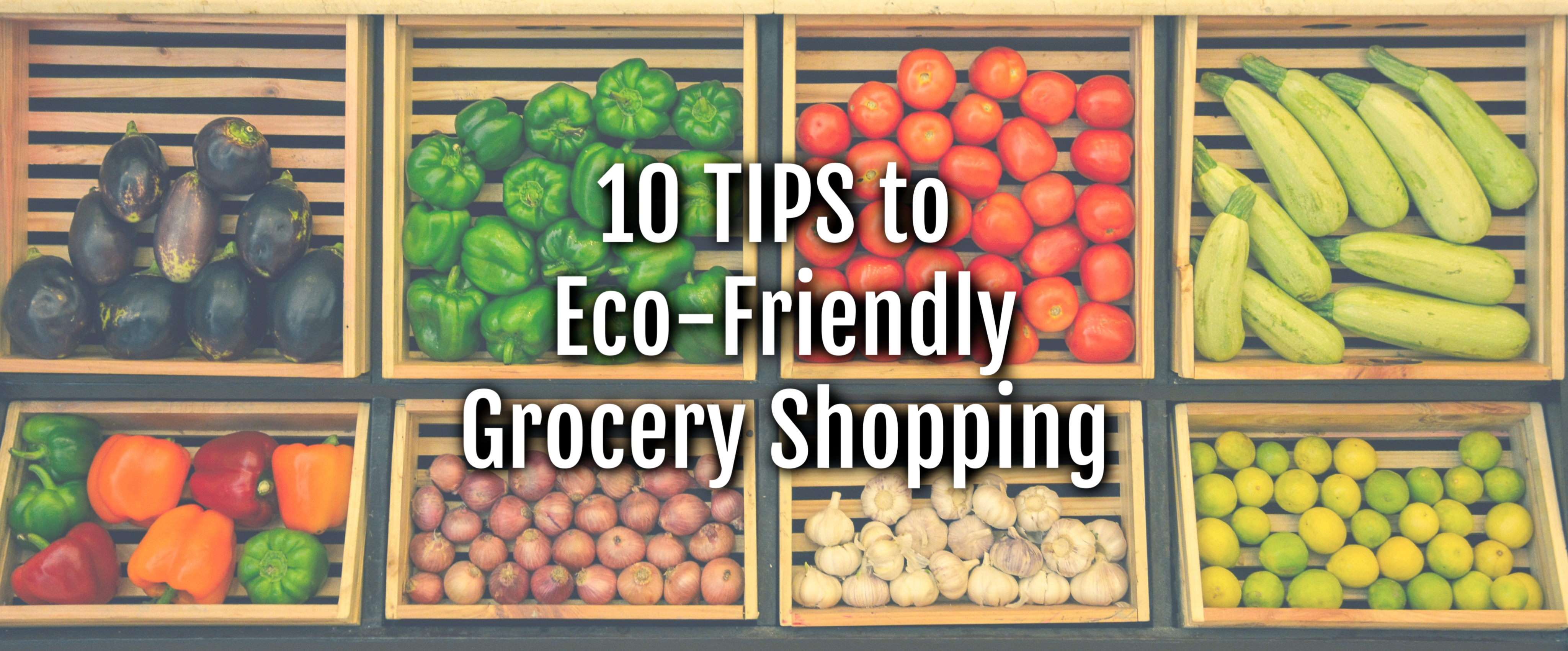


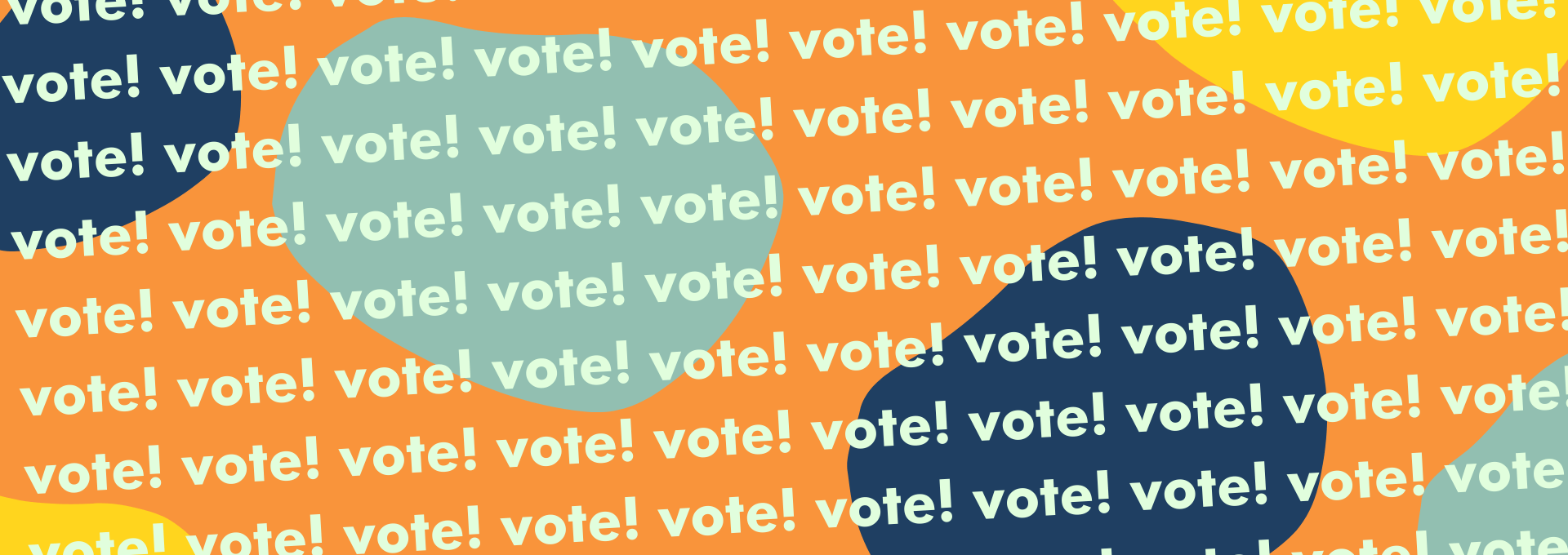
comments
binance us registrace
2024-04-03 22:51:28
I don't think the title of your article matches the content lol. Just kidding, mainly because I had some doubts after reading the article.
Anmelden
2024-04-02 14:16:32
I don't think the title of your article matches the content lol. Just kidding, mainly because I had some doubts after reading the article.
Binance账户
2024-03-25 06:37:50
Your article helped me a lot, is there any more related content? Thanks!
www.binance.com prihlásení
2024-02-19 09:44:27
Can you be more specific about the content of your article? After reading it, I still have some doubts. Hope you can help me. https://www.binance.info/cs/join?ref=DB40ITMB
Binance Pagpaparehistro
2024-01-17 20:06:50
Thanks for sharing. I read many of your blog posts, cool, your blog is very good. https://www.binance.info/ph/join?ref=B4EPR6J0
Binance账户创建
2023-12-22 01:10:07
Your point of view caught my eye and was very interesting. Thanks. I have a question for you. https://accounts.binance.com/zh-CN/register-person?ref=S5H7X3LP
20bet
2023-09-19 19:16:14
Your article gave me a lot of inspiration, I hope you can explain your point of view in more detail, because I have some doubts, thank you.
20bet
2023-09-14 18:38:49
Your article gave me a lot of inspiration, I hope you can explain your point of view in more detail, because I have some doubts, thank you.
20bet
2023-09-09 13:48:07
Your article gave me a lot of inspiration, I hope you can explain your point of view in more detail, because I have some doubts, thank you.
20bet
2023-09-09 04:56:29
Your article gave me a lot of inspiration, I hope you can explain your point of view in more detail, because I have some doubts, thank you.
20bet
2023-09-04 03:05:10
Your article gave me a lot of inspiration, I hope you can explain your point of view in more detail, because I have some doubts, thank you.
Binance Paglikha ng Account
2023-07-04 09:49:32
Your point of view caught my eye and was very interesting. Thanks. I have a question for you. https://accounts.binance.com/ph/register?ref=IJFGOAID
registro na binance us
2023-06-24 14:28:33
Your article helped me a lot, is there any more related content? Thanks! https://accounts.binance.com/pt-BR/register?ref=PORL8W0Z
Daftar
2023-06-23 22:10:50
I don't think the title of your article matches the content lol. Just kidding, mainly because I had some doubts after reading the article. https://accounts.binance.com/id/register?ref=WTOZ531Y
gate.io新手任务
2023-06-14 19:58:02
Reading your article has greatly helped me, and I agree with you. But I still have some questions. Can you help me? I will pay attention to your answer. thank you.
gateio
2023-06-09 00:41:50
I may need your help. I tried many ways but couldn't solve it, but after reading your article, I think you have a way to help me. I'm looking forward for your reply. Thanks.
gateio
2023-06-08 02:13:04
I may need your help. I tried many ways but couldn't solve it, but after reading your article, I think you have a way to help me. I'm looking forward for your reply. Thanks.
Log in
2023-05-30 07:30:54
The point of view of your article has taught me a lot, and I already know how to improve the paper on gate.oi, thank you. https://www.gate.io/uk/signup/XwNAU
binance kayıt olma
2023-05-16 12:31:41
Can you be more specific about the content of your article? After reading it, I still have some doubts. Hope you can help me.
binance odprt racun
2023-05-16 09:33:50
Your point of view caught my eye and was very interesting. Thanks. I have a question for you. https://accounts.binance.com/sl/register-person?ref=JHQQKNKN
Kayıt Ol
2023-05-12 21:44:06
At the beginning, I was still puzzled. Since I read your article, I have been very impressed. It has provided a lot of innovative ideas for my thesis related to gate.io. Thank u. But I still have some doubts, can you help me? Thanks.
binance us тркелу
2023-05-10 06:49:27
Your article helped me a lot, is there any more related content? Thanks! https://www.binance.com/kz/register?ref=RQUR4BEO
gate.io türkiye
2023-05-08 01:19:47
Your article made me suddenly realize that I am writing a thesis on gate.io. After reading your article, I have a different way of thinking, thank you. However, I still have some doubts, can you help me? Thanks.
gateio
2023-05-07 10:28:06
Your article made me suddenly realize that I am writing a thesis on gate.io. After reading your article, I have a different way of thinking, thank you. However, I still have some doubts, can you help me? Thanks.
gate io
2023-05-06 22:56:45
After reading your article, it reminded me of some things about gate io that I studied before. The content is similar to yours, but your thinking is very special, which gave me a different idea. Thank you. But I still have some questions I want to ask you, I will always pay attention. Thanks.